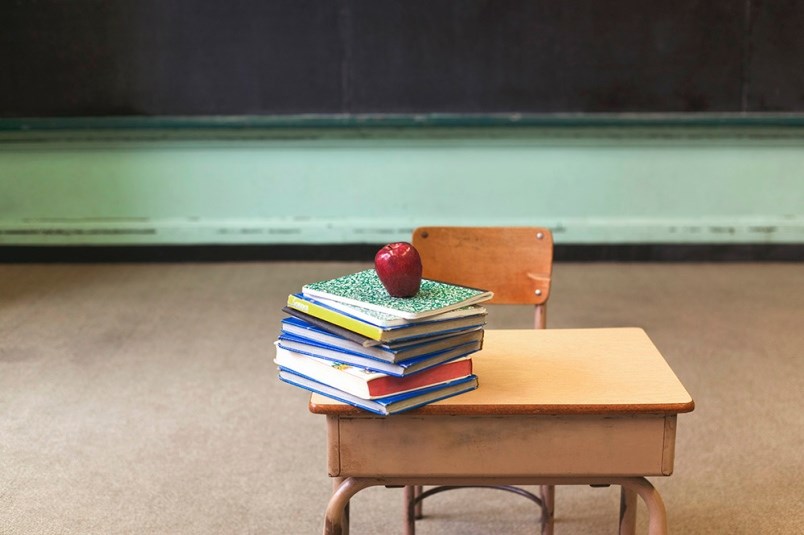There are 240 students in Prairie South School Division (PSSD) who are on behaviour support plans that help teach them behavioural skills they could be missing.
There are 153 students in urban elementary schools who require a behaviour support plan (BSP), 48 students in urban high schools who require a BSP, and 39 students in rural schools who also require such a plan, according to a division report. The numbers are higher in the urban schools compared to the rural schools — 83.7 per cent to 16.3 per cent — since there is a higher proportion of students in Moose Jaw.
Four reasons schools put students on BSPs include issues with behaviour, attendance, violence, or other concerns.
Background
The division established a behaviour support plan training system during the 2014-15 school year. A staff satisfaction survey drove the creation of this system after employees indicated student behaviour was one of the most pressing issues in the classroom.
Teachers, school administrators and student support teachers received professional development in planning for and implementing BSPs through a PSSD-developed behaviour learning cycle, superintendent Lori Meyer told board trustees recently. In later years, there has been a combination of training and small group/individual sessions offered at schools. All students receive an individualized plan to help them.
The focus is to teach missing skills to students to offer them a permanent solution to their behavioural challenges, Meyer explained. The skills cannot be taught in isolation; often take significant time to become permanent; and may require adults to help students alter their behaviours.
Supporting students
The learning support team works through a process to identify the missing skills that lead to the challenging behaviour, understand the function of the behaviour, observe, and then teach the necessary missing skills.
The learning team asks four questions to determine how best to help students:
- What skill would eliminate the need for this behaviour?
- What skill would reduce the frequency or severity?
- What skill would aid in coping with unpleasant stimuli?
- What skills would reduce dependency and improve the quality of life?
After review, the team identified that:
- Replacement skills — such as communication, self-regulation, requesting a break — could answer the first question
- Related skills — such as conflict resolution, vocabulary, problem-solving — could answer the second question
- Coping or tolerance skills — such as delayed gratification, resisting temptation, changing habits — could answer the third question
- Function skills — such as reading, toileting, leisure skills — could answer the fourth question
Everyone in the learning department is an educational consultant, said Meyer. The division is lucky to have people who possess various skills and to whom specific work can be assigned.
Program partners
There are five advocacy and behaviour consultants, including two social workers and three teachers. Some of their skills include high school experience, addictions work, middle years’ experience, life skills training, and school administration.
There are also four student support consultants, all of whom are teachers. One is based in the south, while three are in Moose Jaw. All of them work with schools that are pre-kindergarten to Grade 8 and kindergarten to Grade 12, while all have extensive experience as student support teachers.
Meyer then listed several agency partners that provide supports for students and families in PSSD and Holy Trinity Roman Catholic School Division.
Mental health team
There is a mental health and addictions school team, where 1.2 full-time equivalent (FTE) mental health and addictions workers operate in PSSD schools and provide counselling at A.E. Peacock, Central and Riverview high schools.
From September 2019 to April, there were 143 intakes in this service. This does not reflect the actual number of students who received counselling, but the number of students whom schools referred to the intake process.
Family outreach
A family outreach program has a social worker and family support worker who help families who are struggling to meet their children’s needs. Program staff go into families’ homes and provide parenting support and coaching, attend meetings and doctor appointments with families, and help with food security.
Twenty families in PSSD receive support through this program.
Mentorship
A shared services mentorship program provides small group outings for children who need a positive role model. The staff are employees of the Saskatchewan Health Authority, while the authority meets all of the children’s needs. Usually, 20 elementary-aged students in Moose Jaw benefit from this program.
Helping high school kids
Students from A.E. Peacock, Riverview and Central can be referred to the Steps 4 Success program when students’ behaviour becomes unmanageable at school, but a full suspension is not warranted. Students are sent to the John Chisholm building for up to three days to work on their homework with a support worker, and to work on other life lessons materials that the YMCA provides.
There are roughly 50 to 70 students who go through this program every year.
Behaviour supports
Support workers refer three to six students a year to the enhanced behaviour supports program in Moose Jaw. This program helps students who have challenging behaviours and where no progress is being made to resolve the issues. An SHA psychologist works directly with parents in the home and the school in an attempt to bridge the two.
“This is a complex situation. This requires a long-term commitment from the family. We stay involved with them for a number of years,” said Meyer.
Autism program
An occupational therapist, speech-language pathologist, social worker and support workers help 60 families and children each year — mostly in Moose Jaw and mostly with PSSD — as part of the Autism Spectrum Disorder Program.
Cognitive concerns
Funded by the Ministry of Social Services, a cognitive disabilities strategy financially supports families by helping with access to programming, services, supports, assessments, and children’s supplies.
Thirty to 35 PSSD students and their families receive funding annually.
The next PSSD board meeting is in September.




